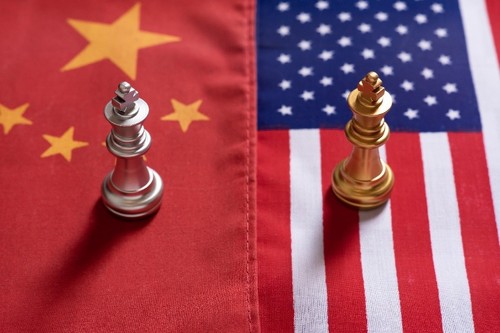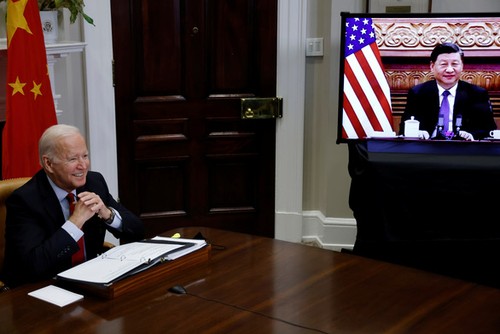 The relationship between the US and China was turbulent in 2021. Photo: Shutterstock The relationship between the US and China was turbulent in 2021. Photo: Shutterstock |
When Joe Biden took office on January 20, there were expectations that US-China relations would improve, as his predecessor Donald Trump was seen as very tough on China. But throughout 2021 relations between the world's two largest economies remain strained. Aggrieved confrontation and strategic competition continued on most fronts: diplomacy, economy, trade, science and technology, and others. At times their confrontations were even more strained than during the Trump administration when analysts said relations were at their lowest point since World War II.
Continued confrontation
A tough stance on China was announced by President Biden in his first statements after taking office. He described China as "the greatest geopolitical challenge of the 21st century." Embracing this view, the US conducted significant force rallying actions throughout 2021: initiating the Build Back Better World (B3W)" as a counterweight to China's Belt and Road program, promoting the QUAD Security Cooperation with Japan, India, and Australia, and establishing AUKUS, the Australia-UK-US Tripartite Security Partnership. The US continued to tighten restrictions on Chinese telecommunications and technology groups Huawei and ZTE, strengthened export control of software and components for Chinese companies, blacklisted technology companies, revoked the operating licenses of some Chinese state-owned network providers, and urged many American businesses to withdraw capital from joint ventures with China. The US harshly criticized China's failure to comply with its trade commitments and in matters related to human rights and Chinese Taipei.
China reacted vehemently, repeatedly criticizing the US government for its provocation and imposition. Beijing took steps to bolster its internal strength and broaden its global influence. For example, in June 2021, China passed the Anti-Foreign Sanctions Law, creating a legal foundation to respond to sanctions. In order to quickly catch up with the US's science and technology capabilities, China promoted the "Made in China 2025" Plan with a focus on high-tech industries and initiated the Digital Silk Road, accelerating China’s rise as a technology power. Beijing was determined in the global race to develop advanced chips, semiconductors, other core technologies, and emerging technologies to become "a self-sufficient, global tech superpower.”
Tensions were heightened in the waning days of 2021 when the US decided not to send any government officials to the Beijing 2022 Winter Olympics. The US accused China of violating human rights and China accused the US of politicizing sports.
 Online summit between US President Joe Biden and Chinese President Xi Jinping in mid-November, 2021. Photo: REUTERS Online summit between US President Joe Biden and Chinese President Xi Jinping in mid-November, 2021. Photo: REUTERS
|
Dialogue and cooperation trend
Despite tit-for-tat actions, the US and China maintained some level of dialogue and cooperation. They held multiple high-level talks, including the Alaska dialogue in March, the Tianjin dialogue in late July, and the online Biden-Xi summit in mid-November. Successive high-level dialogues, held despite not achieving any breakthroughs, helped the two countries maintain the trajectory of their relationship, without letting arguments and conflicts get out of hand. It showed that sitting down and talking is the only way to handle their disagreements.
Although their trade dispute continued unabated and was worsened by the COVID-19 pandemic, US-China trade was dynamic with turnover from January to July posting 40% higher than in 2020, proving their economic interests cannot be completely undermined by political disagreements. At the United Nations Summit on Global Climate Change (COP26) in the UK, the US and China issued a joint statement on a strengthened response to climate change, one area that the US and China can work on together.